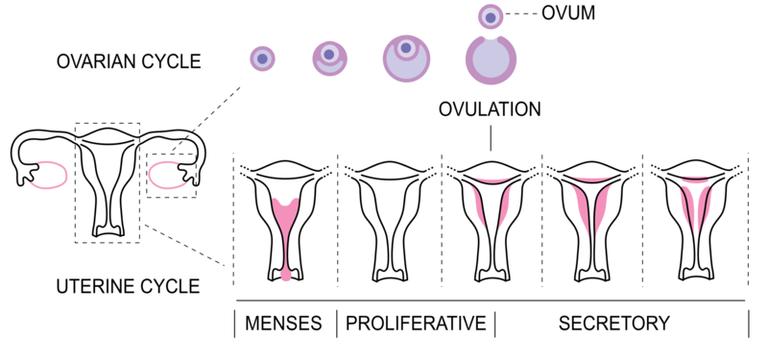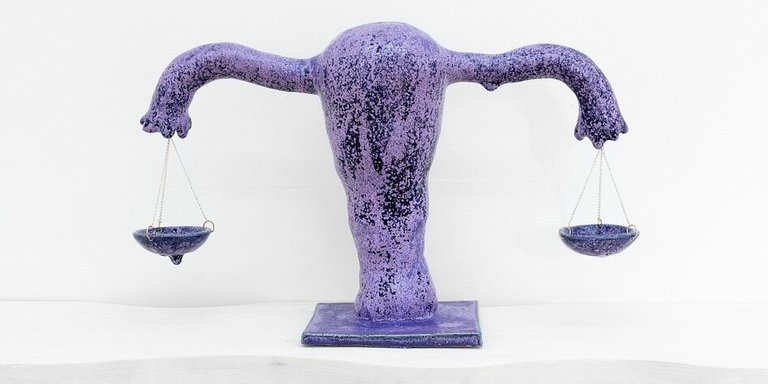Discussing the Science and Myths of Menstruation
Undoubtedly, humans have experienced menstruation for an extensive period, possibly dating back to our evolutionary origins. However, it's important to note that not all mammals undergo menstruation. I once witnessed my dog experiencing vaginal bleeding, and a neighbor humorously referred to it as menstruation. Yet, scientifically, what dogs undergo is not menstruation. In dogs, the bleeding originates from the vaginal area, not the uterus. Furthermore, it occurs before ovulation, in contrast to humans where menstruation typically happens after ovulation.
I want to clarify that while a few mammal species and non-human primates do exhibit menstrual-like cycles, they are the exception rather than the rule. Examples of such species include certain bats, elephant shrews, and African mice. Scientists have been diligently investigating the phenomenon of menstruation, seeking to understand its purpose and mechanisms. In humans, as in the animals mentioned, menstruation operates as a monthly cycle regulated by hormones. It begins with the shedding of the uterine lining, known as the endometrium. This process results in a mixture of blood, mucus, and endometrial cells flowing out of the vagina and typically lasts for 3 to 7 days.
During this period, the ovary is triggered slowly by hormones to produce about 5 to 20 follicles that contain immature egg cells. While they pass through the process of growth and mitosis, only or or two of the eggs are remaining and dominant. The matured egg cells is released while the other eggs disintegrate. When this is about to occur a surge in luteinizing hormone causes the follicle to release the egg into the Fallopian tube.
The follicle become tiny hormonal generator known as the corpus luteum which releases hormone that acts on the lining of the uterus, causing it to differentiate into the types of tissues needed to for fertilization and growth of an embryo, in the process known as decidualization. Decidualization also occurs in non-menstruating mammals when a fertilized egg attaches to the uterus while in humans and menstruating animals, the process happens every month and it does before fertilization of the egg (spontaneous decidualization). If the egg doesn't get fertilized, the Corpus Luteum begins to shrink and dissolve, stopping the production of the hormones that causes the uterus lining to be thick. The uterus then sheds off the lining causing blood flow.
Now, let's explore some intriguing mythology surrounding menstruation. In ancient Rome, scholars believed that coming into contact with menstrual blood could sour new wine, render plants barren, drive dogs mad, and even destroy beehives. Beyond these myths, scientists have made several errors in their attempts to study menstruation. For instance, in the 1920s, there was a belief in the existence of a toxin called "menotoxin" in the sweat of menstruating individuals. It was hypothesized that menstruation served to expel harmful toxins from the body, but this notion was proven entirely wrong.
Another comical hypothesis suggested that menstruation was necessary to flush out pathogens carried by sperm. This theory, proposed in a 1993 paper, hinged on the idea that bacteria in the genital tract attached to sperm tails and were subsequently expelled during menstruation. However, in 1996, an analysis of pathogens in the uterus and during menstruation found no reduction in the number or abundance of pathogens after menstruation. This demonstrated that there was no correlation between menstruation and pathogen removal.
Yet another hypothesis considered the energy expenditure required to maintain a perpetually ready uterine lining for fertilization, suggesting that it might be more energy-efficient to grow a new, implant-ready lining each month. However, this explanation remains incomplete.
A more compelling hypothesis suggests that menstruation is a byproduct of the evolutionary tug-of-war between a fetus and its host. Some scientists propose that a woman's monthly menstrual cycle is a consequence of spontaneous decidualization, which evolved due to the delicate balance between being able to conceive, maintain a pregnancy, and avoid being consumed by the fetus.
Menstruation is a fascinating and complex biological process that has been a part of human history for a long time. While some other mammals exhibit similar phenomena, it remains a unique aspect of human and select animal biology. In other to get a vivid understanding of menstruation, scientists have tirelessly researched it, dispelling myths and misconceptions along the way. As the mechanisms behind menstruation is being explored, we gain valuable insights into human evolution, reproductive health, and the delicate balance of factors that have shaped our species.
- https://journals.openedition.org/mondesanciens/4113
- https://www.goodreads.com/quotes/783114-contact-with-menstrual-blood-turns-new-wine-sour-crops-touched
- https://www.the-scientist.com/foundations/posies-poison-and-periods-early-1920s-69075
- https://www.jstor.org/stable/639905
- https://pubmed.ncbi.nlm.nih.gov/8210311/
- https://academic.oup.com/humupd/article/21/6/748/628724?login=false
- https://psmag.com/news/a-brief-history-of-menstrual-blood-myths
- https://www.nature.com/scitable/topicpage/chromosomal-abnormalities-aneuploidies-290/
- https://www.ncbi.nlm.nih.gov/books/NBK532927/
- https://academic.oup.com/biolreprod/article/91/4/98,%201-8/2434351?login=false
- https://pubmed.ncbi.nlm.nih.gov/11311804/
- https://microbiomejournal.biomedcentral.com/articles/10.1186/s40168-017-0328-9
- https://www.ncbi.nlm.nih.gov/pmc/articles/PMC2649329/
- https://www.mountsinai.org/health-library/report/menstrual-disorders
- https://www.jstor.org/stable/3036558
- https://www.jstor.org/stable/3035646
- https://www.ncbi.nlm.nih.gov/pmc/articles/PMC3528014/
- https://www.ncbi.nlm.nih.gov/pmc/articles/PMC4594618/



Thanks for your contribution to the STEMsocial community. Feel free to join us on discord to get to know the rest of us!
Please consider delegating to the @stemsocial account (85% of the curation rewards are returned).
Thanks for including @stemsocial as a beneficiary, which gives you stronger support.
Women are really trying when they are facing their menstral cycle